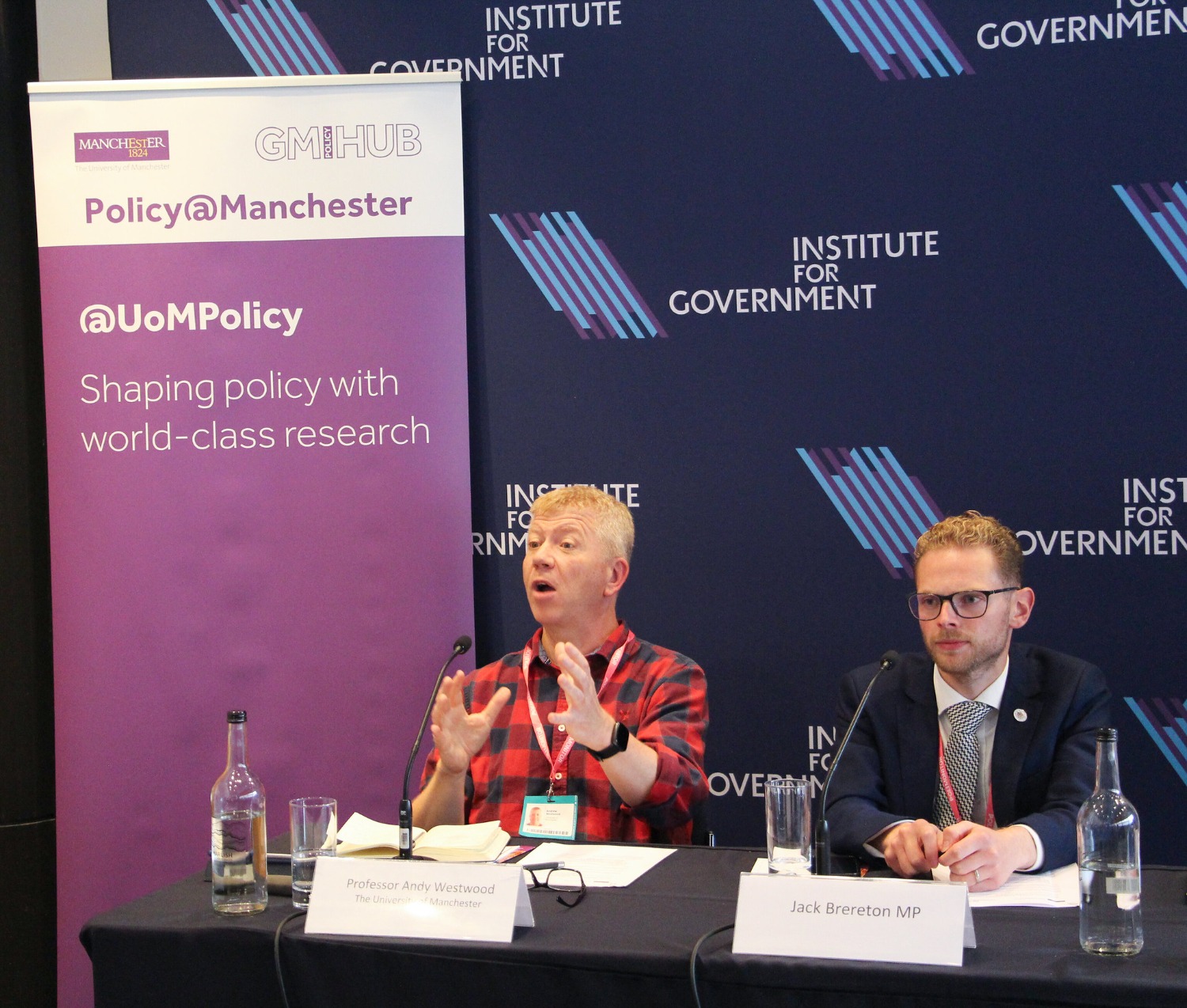Constant changes to national and local institutions, policies and ministers are damaging productivity and deepening regional inequalities, two prominent academics have warned.
In a joint article, Andy Westwood, Professor of Government Practice at The University of Manchester, and Adrian Pabst, Deputy Director of National Institute of Economic and Social Research, argue that “the UK’s economic woes are linked to a high level of political instability and policy churn, which has contributed to low business confidence.”
This volatility, they highlight in their piece, has been particularly pronounced since the 2016 EU Referendum, with five Prime Ministers and seven Chancellors of the Exchequer since the vote took place – including three Prime Ministers and four Chancellors in 2022 alone.
But they add: “It’s not only ministerial churn that characterises this current period in government” with changes to “policies and key economic institutions” also playing their part, together with “a series of ever-changing growth strategies and the constant reconfiguration of departments associated with delivering them.”
Professors Westwood and Pabst contend that the establishment of “institutions at the national, local and sectoral levels” which are then “abolished at will” has underpinned the uncertainly. This includes Local Enterprise Partnerships which were “established in 2010, reviewed repeatedly and then abolished in 2023.”
The academics remind readers that the last Labour Government had “also been cautious on both devolution and the configuration of national and local institutions.”
This included the creation of the sprawling Department for the Environment, Transport and the Regions, later replaced by the Department for Communities and Local Government, and the introduction of Regional Assemblies which were then abolished in favour of Leaders’ Boards and then Local and Multi Area Agreements.
Professors Westwood and Pabst conclude that “this long-term attitude to our institutions comes at a considerable cost.”
They write: “Longstanding policy and organisational churn contributes to spatial inequality and to poor productivity by exacerbating uncertainty when policymaking is supposed to absorb shocks and provide some more stability. It is every bit as damaging as abandoning major infrastructure projects such as HS2 or HS3 or U-turns on net zero targets and many other industrial strategies.”
And they call on ministers – current and future – to “resist doing such damage and instead look to build long term capacity and effectiveness into both national and local institutions.”
Professors Westwood and Pabst add: “They should also learn to work with, and trust, institutions including city-region mayors – even if not from the same political parties and even narrower networks and like-minded cliques. This must be the politics – and economics – of long-term stability, increased capacity and sufficient resources that are required if we are to improve and grow the economy throughout the country.”
‘Control. Alt. Delete: Governments and their problem with institutions’ by Andy Westwood and Adrian Pabst is available to read on The University of Manchester website.
Professor Westwood will join a panel, including Mayor of Liverpool City Region Steve Rotheram and Northumbria Police and Crime Commissioner Kim McGuinness, at Labour Party conference on Tuesday 10 October to discuss ‘How can a Labour government build strong institutions to reduce regional inequalities?’
Full details on the Policy@Manchester website.





